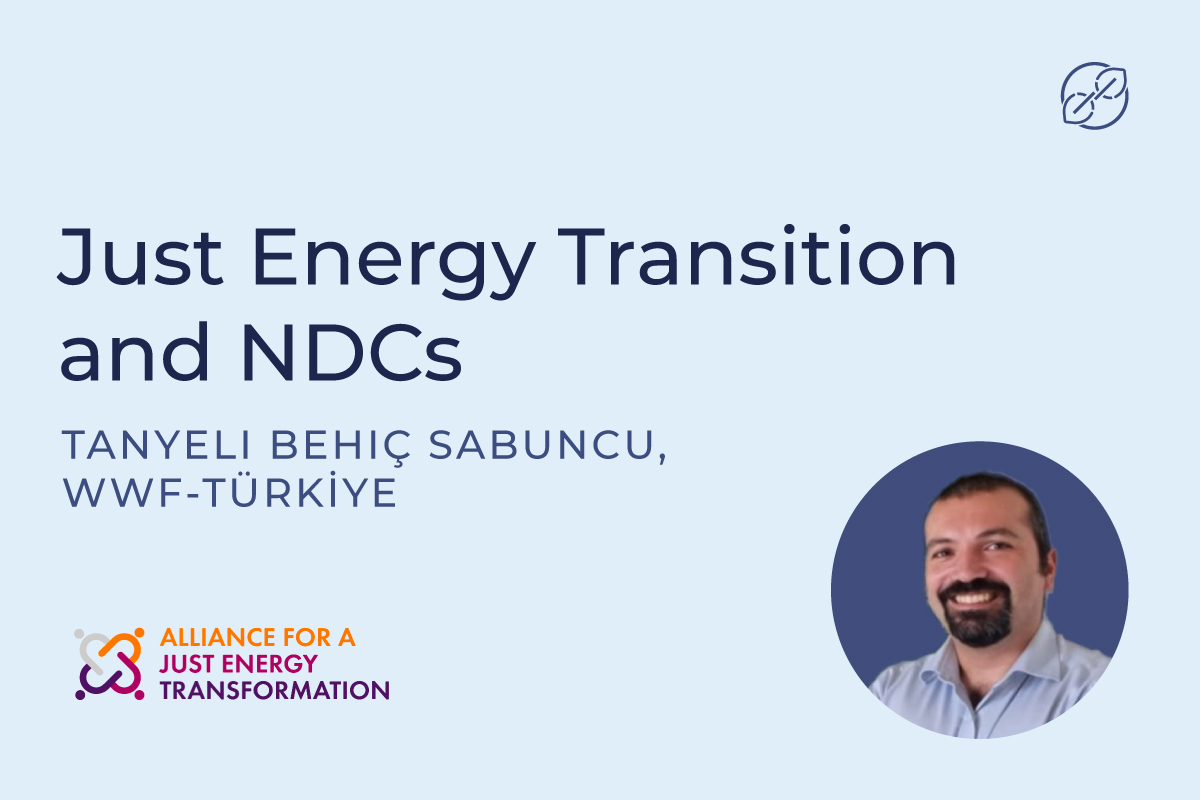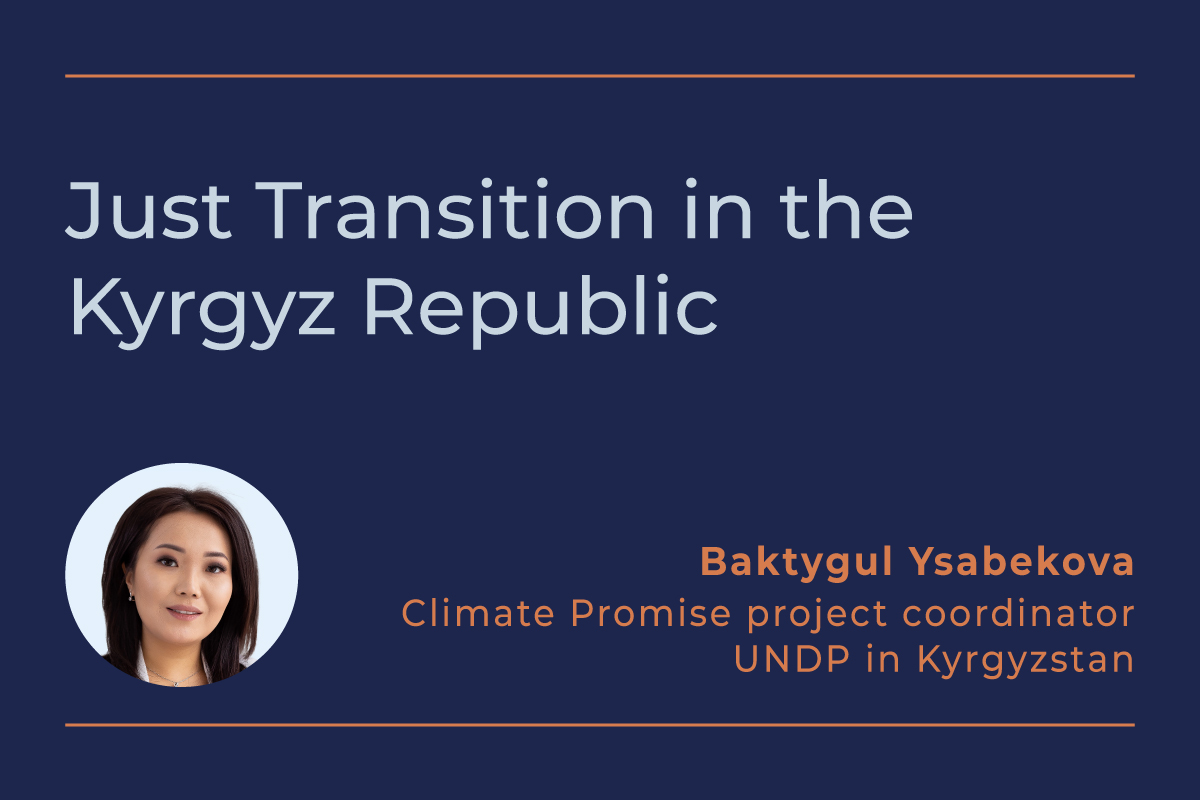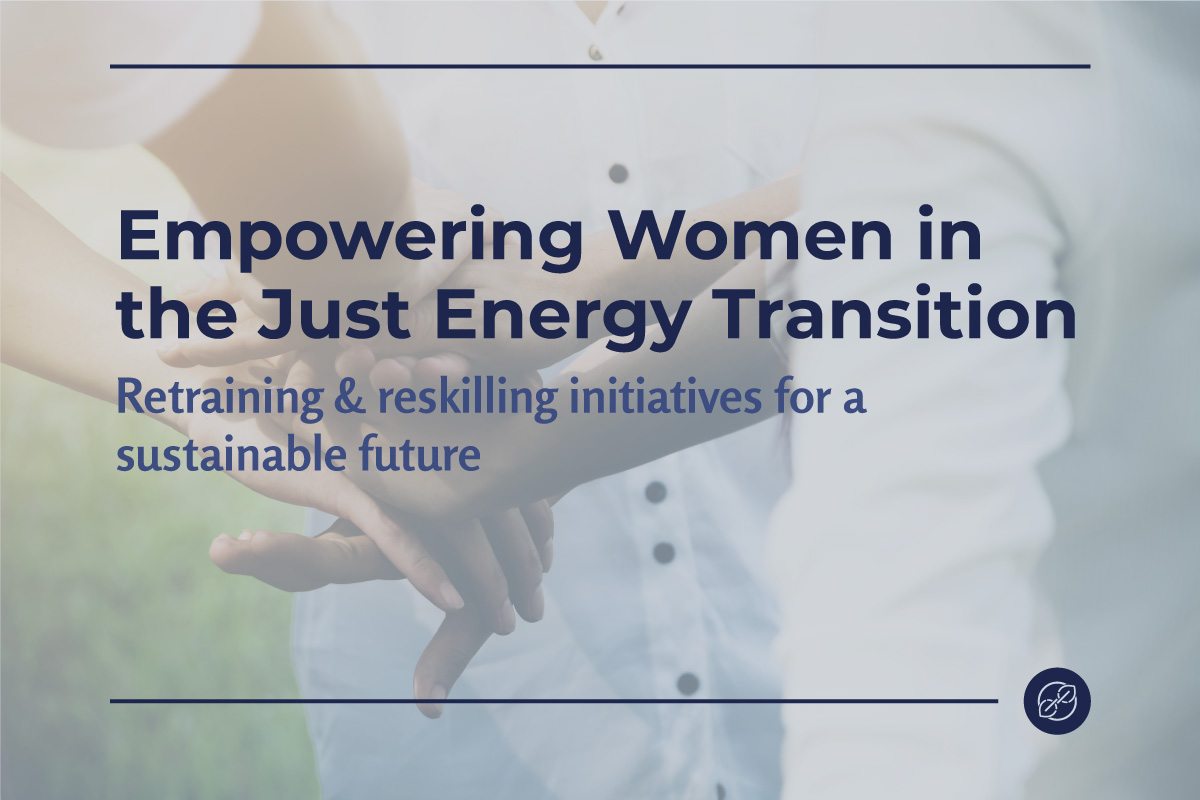Introduction
Tanyeli Behiç Sabuncu, is a Climate and Energy Practice Manager at WWF-Türkiye where he focuses on the energy transformation, the next round of NDCs and aspects of the Just Transition on the ground in Türkiye.
As part of that work, he is currently leading an initiative through the Alliance for a Just Energy Transition (AJET) to develop guidance which aims to support governments to effectively integrate just energy transition in their new NDCs due in 2025 and covering the period 2025-2035.
In this Q&A we ask Tanyeli about his role at WWF, the situation in Türkiye working towards the next round of NDCs and the initiative he is spearheading at AJET.
Question: Could you describe your role as the Climate and Energy Practice Manager at WWF-Türkiye and how it aligns with Türkiye's efforts towards the next round of NDCs?
I am leading the climate and energy programme at WWF-Türkiye. Our strategic objective is to make sure that 1.5 oC aligned targets and policies are in place at the national and local level in Türkiye. In this context a fair and fast transformation in the energy sector is a major component.
As we all know, phasing out fossil fuels is a must in order to achieve net-zero emissions globally by 2050. We also know that time is not on our side. Although Türkiye has a net zero target for 2053, our current NDC (41% reduction from BAU) does not foresee an actual reduction in emissions but a net increase of almost 33% from 2020 levels. Therefore we need to make sure that the next round of NDCs serves the purpose.
Q: What are some of the key challenges and opportunities you've encountered while working on the ground in Türkiye to promote the energy transformation and integrate aspects of the Just Transition?
At WWF-Türkiye Climate and Energy Programme, our number one priority on energy transformation is to stop new coal projects and convince policy makers and all key stakeholders to develop a sound plan to phase out coal while leaving no-one behind. Our main challenge in this context is path dependency. Currently Türkiye produces more than one third of its electricity from coal. In the meantime we also know that there are new projects in the pipeline. Notably the National Energy Plan projects 3.2GW additional coal capacity until 2035.
To be able to create an enabling environment for a renewable energy transition we need clear policy signals. Although there are strong targets for capacity increase in solar and wind, current subsidies to fossil fuels in Türkiye, including capacity payment schemes and purchasing guarantees for coal plants, and lack of a carbon pricing scheme creates a major inconsistency.
Putting in place proper economic incentives is not only critical for achieving the energy transformation in time but also creating resource flows for just transitions. It is no surprise that reskilling, up-skilling and retirement mechanisms for the transformation of the current workforce will require funds. In addition to this we need to convince the private sector to channel investments in green industries, especially in coal dependent regions such as Zonguldak, Soma and Adana in order to diversify these economies.
Q: Can you provide insights into the specific objectives and goals of the initiative you're leading through the Alliance for a Just Energy Transition (AJET) to develop guidance for integrating just energy transition into new NDCs?
While the ILO calls for decent work and just transition dimensions to be addressed fully by UNFCCC Parties in their NDCs and long-term plans for net zero (as well as in the design, implementation and reporting of such plans) the reality is that just transition is not yet included consistently or coherently in NDCs. According to UNDP figures, almost 40% of current NDCs include a reference to just transition. However only 17% of those NDCs include a dedicated chapter on the issue. We must transform our economies in a way to ensure that we work with nature, not against it. The energy sector, being responsible for 81% of global CO2 emissions, is without a doubt the first and most important area to tackle in this context. While planning such transformation we cannot overlook social risks. Therefore just transition cannot be seen as a shiny phrase to be included in statements. We need to clearly define and address the terms and methods of “transition”.
The Alliance for Just Energy Transformation (AJET) is an initiative pioneered by WWF and UNDP, in which members recognize that the delivery of development goals is dependent upon integrated, managed transitions to sustainable energy systems, driven by people from the bottom-up and guided by principles of procedural, distributional, restorative, recognitional and intergenerational justice. We have formed a working group under AJET with the aim of defining the parameters of just energy transition in NDCs. Our plan is to come up with guidance including KPIs on integrating a just energy transition in NDCs by the end of the year. Therefore we will be able to make a solid contribution in the discussions under the UNFCCC.
Q: In what ways do you envision the guidance developed by AJET supporting governments in effectively integrating just energy transition into their new NDCs, particularly considering the context of Türkiye's energy landscape?
The current projections and trends indicate that phasing out coal is inevitable in the future for Türkiye. Reaching a net-zero economy by 2053 requires facilitating clean energy infrastructure. This is also a part of our National Energy Plan which was published in the beginning of last year. According to the projections in the plan the share of fossil fuels in energy production will decrease almost half by 2035 and by 2053 70% of our energy will come from renewables. Yet the plan does not foresee a phase out from coal. Therefore it is still ambiguous when and how the current fossil fuel capacity will be transformed.
A just energy transition first and foremost requires a decisive and clear plan. Therefore, we hope that via defining the elements of just energy transition in NDC we can contribute to creating the enabling environment for sound planning and bolder action in Türkiye.
Q: How do you see the role of collaboration and partnership, both domestically and internationally, in advancing the goals of WWF-Türkiye and the AJET initiative, especially in the context of shaping sustainable energy policies and practices for the future?
Setting the scene for a constructive, inclusive and healthy dialogue is the core element of just transition. We need to work for triggering change both from bottom-up and top-down. This requires collaborating with a wide range of actors to build a stronger voice. As an initiative including members from civil society, private sector, trade unions, think tanks and international organizations, AJET provides a great basis for the necessary multi-stakeholder dialogue which will build the narrative for a robust transformation.
Such a narrative will not only influence the talks at international level but also reflect on domestic discussions. Based on that thought, we planned the work on integrating just energy transition in NDCs in two phases. On one hand we will be conducting discussions under AJET, while on the other hand we will also be organizing workshops at the national level (where Türkiye will be first example) to engage the members of AJET with national stakeholders.




